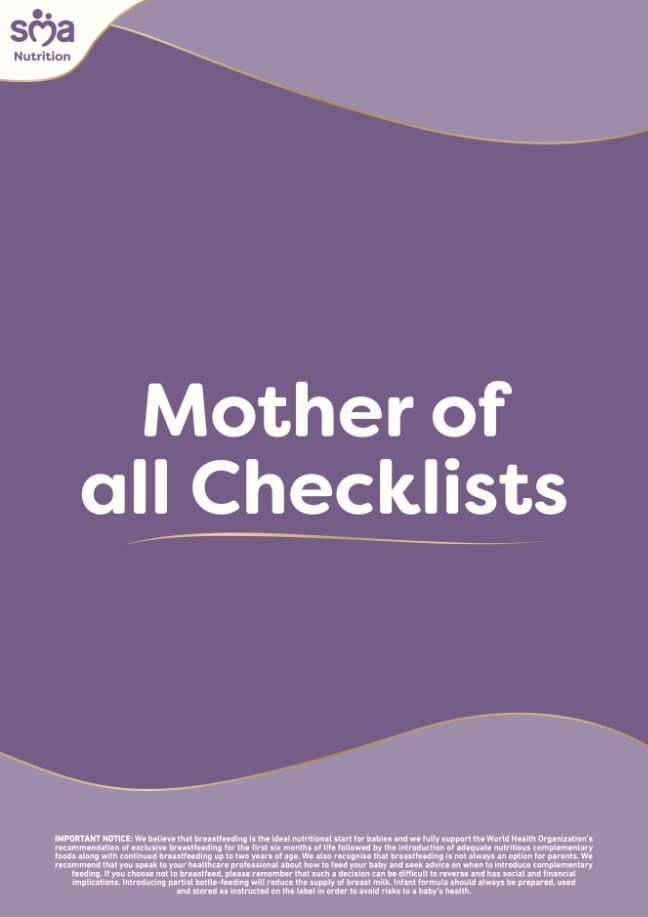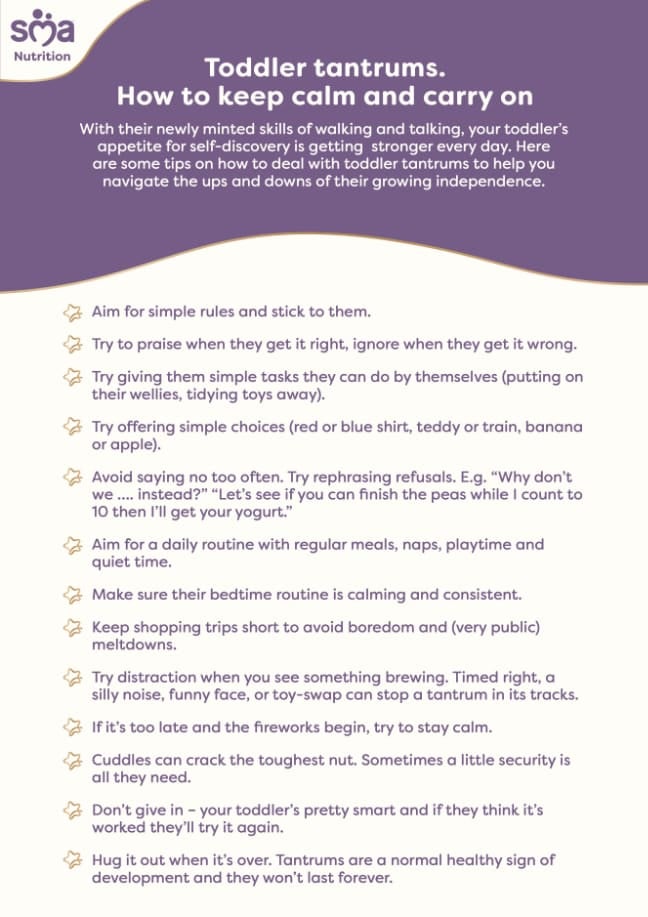Introduction
Screaming, kicking, biting, hitting and throwing their toys out of the pram – literally. Toddler tantrums can be fearsome to behold. Some people call them the ‘terrible twos’, but that seems a bit harsh on toddlers. It’s a natural stage of development, more like the ‘inevitable/temporary twos’. Tantrums start between 18 months and four years, and usually happen when your toddler gets tired, hungry or bored, so look for triggers. When a meltdown strikes, try to stay calm and just wait it out. Praise good behaviour and offer your toddler a hug when they’re calm again. This article covers tips to deal with tantrums and how to spot the signs.
Tips for dealing with toddler tantrums
Here are some things you can try when your mini-me goes haywire:
- When the fireworks begin, try to stay calm
- Cuddles can crack the toughest nut, sometimes a little security is all they need
- Ignore them, they may realise their tantrum has no effect
- Don’t give in – your toddler’s pretty smart and if they think it’s worked they’ll do it again
- Hug it out when it’s over. Tantrums are a normal healthy sign of development and they won’t last forever
Common tantrum triggers and spotting the signs a tantrum is brewing
You’ll soon start to spot the signs that a toddler tantrum is brewing. Along with frustration, you’re likely to find tiredness, hunger or boredom are common triggers. And though you won’t always be able to avoid meltdowns completely, there are some things you can do to reduce their frequency or nip them in the bud.
Dealing with Toddler Tantrums at home
- Aim for simple rules and stick to them
- Try to praise their good behaviour and choices
- Try giving them simple tasks they can do by themselves: putting on their wellies, tidying toys away
- Try offering simple choices: red or blue shirt, teddy or train, banana or apple
- Avoid saying no too often. Try rephrasing refusals. E.g. “Why don’t we …. instead?” or redirect their attention
- Aim for a daily routine with regular meals, naps, playtime and quiet time
- Make sure their bedtime routine is calming and consistent
Dealing with Toddler Tantrums in Public
- Keep shopping trips short to avoid boredom and public meltdowns
- Have a bag of tricks with you to try and avoid boredom tantrums. Their own bag filled with different toys, stickers, etc.
- Consistency is your friend. If you’re out in public you shouldn’t have to change your tactics to appease other people – unless you’re on a long flight or in a place of worship – you know what they say about desperate times
- If a meltdown looks imminent and you’re in a restaurant or other public place, try taking them quickly out of the venue and telling them firmly but patiently that they can go back in once they are calm again. This not only often helps them, but it can help you if you’re feeling self-conscious or stressed
What else you can do to calm down your toddler:
- Try distraction when you see something brewing. Timed right, a silly noise, funny face, or toy-swap can stop a tantrum in its tracks – and make both of you laugh
- Remember that you’re the adult, so no matter how long the tantrum goes on, try not to give in to unreasonable demands or negotiate. They will try and get what they want, and they can be surprisingly clever.
Taking care of you
Dealing with a toddler having a tantrum can be challenging and may cause you to feel self-conscious, but it's important to remember that even if you feel like people are judging, many of them have been through it all before. Most people are empathetic upon seeing a child behave in this manner, understanding that it's a temporary phase and that with time, children become emotionally mature and handle their emotions differently. So, don't worry – with the right approach and as your toddler grows, you'll be equipped to manage or calm any tantrums they might have.
Leaning on your support network — family, friends, or other parents—can also make a big difference. Talking to someone who understands, asking for help, or simply having a break can help you recharge. Remember, you're not alone in this journey, and reaching out is a strength, not a weakness.
When you feel supported and cared for, you're better equipped to manage the challenges of parenting—including those tough tantrum moments. We have put together a handy guide to handle toddler tantrums with confidence. Learn how to support your child’s growing independence and manage challenging moments calmly.

Join SMA® Baby Club to receive the Mother of all Checklists. With 63 checklists across your parenting journey from pregnancy through to toddlerhood we have you covered.









